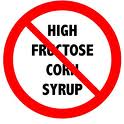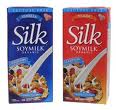Archive
Gluten Free Resources For Raleigh and Beyond
Here is a list of online as well as local resources for leading a healthy, happy gluten-free life.
Blogs
thenourishedlife.blogspot.com
gnowfglins.com
glutenfreemommy.com
glutenfreegoddess.blogspot.com
glutenfreeeasily.com
glutenfreegirl.com
Local Resources
Rosie’s Plate www.rosiesplate.com
glutenfreeraleigh.blogspot.com
http://www.urbanspoon.com/t/25/1/Research-Triangle/Gluten-Free-Friendly-restaurants
Grocery Stores
Harmony Farms
Earthfare
Whole Foods
Trader Joes
Ask your local chain grocery store where they keep the wheat/gluten-free items
Books
Check the library for wheat/gluten-free cookbooks to see which you like best. Then buy the ones that work best for you.
Wheat Free Alternative Grains
Cancer Loves Sugar
I’ve known for a while that sugar fuels cancer growth but I read an article today that targets fructose as cancer’s particular favorite.
The journal Cancer Research published a study conducted by UCLA that demonstrated that pancreatic cancer cells favor fructose as a fuel source  over other forms of sugar, like glucose. The UCLA study found that while cancer uses sugar in general as fuel, fructose drives cancer cells to divide, thereby multiplying themselves.
over other forms of sugar, like glucose. The UCLA study found that while cancer uses sugar in general as fuel, fructose drives cancer cells to divide, thereby multiplying themselves.
The main source of fructose in the American diet is in the form of high-fructose corn syrup which is found is sodas, sports drinks, candy, snack foods, bread, and cereal to name a few. On average, Americans consume 70 grams of fructose per day, much more than is recommended by health organizations. 
Fructose is also found in fruit but in smaller amounts. For example, a high sugar fruit such as a banana has 7.28 grams of fructose per serving while a low sugar fruit like a peach has 2.36 grams. Author and physician Joseph Mercola, MD recommends less than 20 grams of fructose per day with a limit of 15 grams from fruit.
Healthy 4 Life: Dietary Guidelines from the Weston A. Price Foundation
This post is taken from Healthy 4 Life: Dietary Guidelines from the Weston A Price Foundation for Cooking and Eating Healthy, Delicious, Traditional Whole Foods. 
These foods can cause many health problems including poor growth in children, learning disabilities and behavior problems, allergies, asthma, arthritis, heart disease, cancer and auto-immune problems.
Polyunsaturated and partially hydrogenated vegetable oils used in  processed foods, chips, snack foods, cookies, pastries, for cooking oils and for friend foods, which science has shown to cause numerous serious health problems.
processed foods, chips, snack foods, cookies, pastries, for cooking oils and for friend foods, which science has shown to cause numerous serious health problems.
Foods containing refined sweeteners such as candies, sodas, cookies, ice cream and cakes. 
White flour products such as pasta, white bread, rolls and bagels.
Processed foods and fast foods containing many additives, including MSG and hydrolyzed vegetable protein; these are poisonous to the nervous system and can cause weight gain.
Modern soy foods, such as soy protein, soy protein isolate , soy milk, tofu, and hydrolyzed vegetable protein, which can cause digestive problems hormone disruption and thyroid disease.
, soy milk, tofu, and hydrolyzed vegetable protein, which can cause digestive problems hormone disruption and thyroid disease.
Artificial sweeteners such as aspartame (Equal and Nutrasweet) and sucralose (Splenda), which are added to diet sodas and weight loss foods. These are toxic to the nervous system and may even cause weight gain.
Stimulating foods containing caffeine and caffeine-like substances, such as coffee, tea, sodas, energy drinks and chocolate.
